[No Photo Available]: Hagar Barak, History
[No Photo Available]: Marina Bilbija, English
 Jessica Cerezo-Román, Anthropology
Jessica Cerezo-Román, Anthropology
I specialize in the study of highly fragmented and cremated human remains, mortuary practices, bioarchaeology, and forensic anthropology. My research interests include both method and theory in modern populations, and in ancient populations of the American Southwest, Mexico, and Northern Europe. I am particularly interested in deconstructing funeral rituals in emerging complex societies to understand cultural practices related to identity(ies) intersections, personhood, and embodiment.
[No Photo Available]: Genevieve Clutario, History
 Martin Day, Psychology
Martin Day, Psychology
I am a social psychologist with research interests in applying psychological theory to help better understand everyday problems. Much of my current research centers on social justice issues, such as relating to social and economic inequality, social mobility, and ideology. For example, I conduct research that aims to explain why we tend to maintain the status quo, even when faced with stark conditions of societal inequality. I also do research on morality, ranging from the role of moral foundations in political attitudes to the psychological processes involved in apologies and punishments for wrongdoing. For more information, please visit my website: http://scholar.harvard.edu/mday/
 Jillian DeMair, Germanic Languages and Literatures
Jillian DeMair, Germanic Languages and Literatures
My research explores the effects of self-conscious narration in stories that address credibility and authenticity. I examine features that can be considered in a broad sense to comprise the “frame” of a story—the level on which we as readers are asked to believe or question the story—and use them to glean insights into cultures and conventions of storytelling. I also study the intersections of literature and geology in nineteenth-century Germany, especially in texts that portray the earth as an archive of history’s secrets and evoke parallels between storytelling and geological excavations.
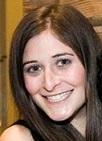 Lara Durgavich, Human Evolutionary Biology
Lara Durgavich, Human Evolutionary Biology
My research, conducted using data from captive apes, focuses on how ovarian steroid levels change with age and examines the effect that these reproductive hormones have on female attractivity, receptivity, and proceptivity (i.e. mating behaviors). Results from these investigations are contributing to a better understanding of the evolution of great ape life history patterns, particularly the periods of reproductive maturation and senescence, and providing insight into the evolutionary history and adaptive significance of ‘concealed’ ovulation.
[No Photo Available]: Burak Eskici, Sociology
[No Photo Available]: Adam Hart, Visual and Environmental Studies
 Robert Homsher, Near Eastern Languages and Civilizations
Robert Homsher, Near Eastern Languages and Civilizations
I am an archaeologist specializing in the ancient Near East and Eastern Mediterranean, with a focus on the Bronze and Iron Age Levant. Much of my current research involves paleoclimate reconstructions and addresses human responses to environmental change, while also using archaeological sciences to analyze several categories of material culture. I conduct regular fieldwork as Assistant Director of the Jezreel Valley Regional Project and senior staff member of the Megiddo Expedition.
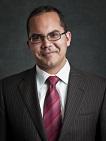 Albertus Horsting, Classics
Albertus Horsting, Classics
I study the Greek and Latin literature of early Christianity, particularly the traditions of didactic poetry and the legacy of Augustine of Hippo. I am also interested in the Medieval transmission and reception of patristic literature and the place of anthologies in the formation of canons. I have prepared the first critical edition of Prosper of Aquitaine's book of epigrams on the teachings of St Augustine (to be published in the Corpus Scriptorum Ecclesiasticorum Latinorum), one of the most popular attempts to distinguish Augustine by gathering together brief statements (sententiae) from the vast ocean of Augustine’s writings and fashioning verse renderings of them. His poetical synthesis of Augustine's doctrines determined the contours of Augustinian exegesis for centuries to come.
 Gregory Kestin, Physics
Gregory Kestin, Physics
What are the fundamental laws of nature, and how do they govern the universe and all the phenomena around us? These big questions underlie my research interests, from particle physics and dark matter to cosmology and black holes. My recent work focuses on the development of an effective quantum field theory for calculations crucial to the discovery of physics beyond the standard model at the Large Hadron Collider and future accelerators. I am also committed to communicating science beyond the walls of the research lab; I have produced popular science videos for the public at large and am developing and investigating the most engaging uses of media in and out of the classroom.
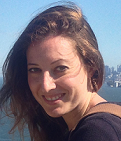 Sasha Kimel, Psychology
Sasha Kimel, Psychology
My primary line of research focuses on reducing intergroup conflict and improving intergroup interactions. In order to create psychologically plausible interventions that have cross-cultural relevance, I also explore the underlying psychological mechanisms involved in these interactions and how these vary by culture. By targeting meaningful real-world situations (e.g. the Israeli-Palestinian conflict), my research endeavors not only to advance theories within the academic community but also to create real-world change. For more info, please visit my website: http://scholar.harvard.edu/kimel/
 Evan Kleiman, Psychology
Evan Kleiman, Psychology
There is an alarmingly high number of individuals that die by or are at risk for suicide every year. The goal of my research is to examine factors that might reduce suicide risk. To date, my research has investigated gratitude, grit, social support, and optimism as suicide residence factors. My most current research involves real-time prediction of iminent suicide risk and resilience.
 Nicole Legnani, Romance Languages and Literatures
Nicole Legnani, Romance Languages and Literatures
My research and writing lie at the intersection of Latin American history and literature, post/colonial studies, indigenous studies, and cultures of capitalism, insurgency and apostasy. I analyze the contributions of Spain’s imperial enterprises to modernity while underscoring the agency of indigenous peoples in their negotiations with the invaders. The Drawing Conclusions website, a collaboration with Sarah W. Searle, explores contact zones between modern and non-modern subjects in the Americas and offers other media for scholarly discourse about peoples supposedly “without history.” Drawing Conlusions is funded by the Lasky-Barajas Dean’s Innovation Fund for the Digital Arts and Humanities at Harvard.
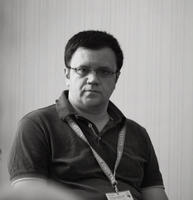 Florin Leonte, Classics
Florin Leonte, Classics
I am a Byzantinist broadly interested in the connections between medieval rhetoric, ideologies, and society. My focus is on the interactions between scholars, ecclesiastics, and high ranking state officials in fourteenth and fifteenth century Byzantium. My forthcoming book will deal with the construction of a particular kind of imperial authority in the rhetorical texts of a late Byzantine emperor. In addition, my other projects use various collections of medieval Greek letters to reconstruct local and transnational social networks.
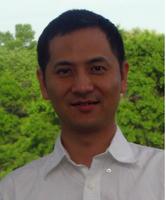 Shenghai Li, South Asian Studies
Shenghai Li, South Asian Studies
My study and research fall within the general areas of philosophy, religion, and literature of India and Tibet. As an ACLS New Faculty Fellow, I offer courses in Indian religions and Buddhist philosophy and literature in the Department of South Asian Studies and, occasionally, in the Committee on the Study of Religion. My book project explores new ways of studying classical Indian Buddhism through the theoretical angle of scripture. In 2014–2015, I will also be writing research papers and completing a small translation project.
[No Photo Available]: Chi-Ming Liu, Linguistics
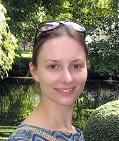 Viktoriia Liublinska, Statistics
Viktoriia Liublinska, Statistics
I work on developing a set of rigorous methods to perform sensitivity analyses of conclusions obtained from empirical studies with partially missing data. The methods are applicable to a wide range of problems, and I am especially focusing on medical, social science and education fields. I also collaborate with scientists at NYU School of Medicine on numerous applied projects that involve biomedical research, carrying out study design, protocol development, power calculation, statistical analyses and their interpretation. Finally, I am interested in improving current techniques of teaching statistics and looking for novel approaches to engage students and make the subject even more fun and exciting, while maintaining the necessary level of rigor.
 Charles Lockwood, Religion
Charles Lockwood, Religion
My research and teaching interests focus on the intersection of religious ethics and the philosophy of religion in the modern West. My current research examines the philosophical and religious legacies of Immanuel Kant's notion of autonomy, and I situate this work in relation to debates about secularization and modernity. I have presented my research at meetings of the American Academy of Religion, the Society of Christian Ethics, and the UK Kant Society. My current teaching includes courses on Christian ethics and comparative religious ethics, as well as courses examining historical and contemporary perspectives on the relationship between religion, secularism, and modernity.
 Leah Lowthorp, Folklore and Mythology
Leah Lowthorp, Folklore and Mythology
My work is fundamentally interdisciplinary, spanning the fields of Folklore, Anthropology, South Asian Studies, and Performance Studies. Broadly examining how changes in artistic cultural practice reflect wider social and political changes over time, I take a postcolonial approach to cosmopolitanism, UNESCO intangible cultural heritage, and the politics of culture in India through the lens of Kutiyattam Sanskrit theater of Kerala state. As an artist scholar, I studied and performed Nangiar Koothu, the female solo form of Kutiyattam, as part of my research. I teach on a wide range of topics, including globalization and the arts, ethnographic fieldwork methods, South Asian folklore, gender and expressive culture, and social justice and the arts. For my next project, I am interested in examining the relationship between arts patronage and processes of commodification in India.
 Zarin Machanda, Human Evolutionary Biology
Zarin Machanda, Human Evolutionary Biology
My research areas include primate social behavior, chimpanzee behavioral ecology, sex differences in behavior and the evolution of life history patterns. Specifically my research questions examine the development of wild chimpanzees to understand how baby chimpanzees grow up to be adults and how social and environmental factors affect these developmental pathways. This research leads to a better understanding of the variation that we see among adult chimpanzees, especially the differences between males and females. Ultimately my goal is to use data from chimpanzees to better understand the development of human gender differences and the evolution of human life history patterns.
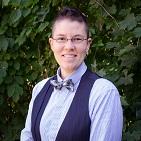 Stephanie Meredith, Human Evolutionary Biology
Stephanie Meredith, Human Evolutionary Biology
I study the development of social behavior in non-human primates. I focus specifically on the development of behavioral sex differences in non-human primates because I am interested in being able to make data-based inferences about evolution of human sex-typed behavior. My past work has focused on wild ring-tailed lemurs in southwestern Madagascar, and I am currently working to expand my taxonomic focus to include wild baboons in Ethiopia.
 Ruxandra Paul, Government
Ruxandra Paul, Government
I specialize in comparative politics. My research interests include international migration, cyberpolitics, democratization, citizenship, and European integration. My book manuscript Citizens of the Market: New Forms of International Migration and their Consequences for People, Parties and Political Systems examines the political effects of high-mobility migration in migrant-sending countries. Apart from political science, teaching and advising, I really enjoy music (piano, guitar, vocal), writing, long-distance running, art, and foreign languages.
[No Photo Available]: Federico Perez, Anthropology
 Katherine Powers, Psychology
Katherine Powers, Psychology
As a social species, our brains have developed to be highly attuned to social context. My research combines behavioral and neuroimaging techniques to understand how social and emotional cues in our environment influence cognition, and to identify the neural systems responsible for integrating this information to produce adaptive and flexible behavioral responses. My most recent work has focused on characterizing the motivational properties of social cues and contributions of the neural reward system to social interactions.
 Steven Press, History
Steven Press, History
I am interested in sovereignty, international relations, and the development of imperialism. I am currently finishing a manuscript that offers a new approach to understanding the European Scramble for Africa in the late-nineteenth and early twentieth centuries.
 Eva Rosen, Sociology
Eva Rosen, Sociology
My research examines why and how poverty concentrates spatially, how the built environment and the unequal distribution of resources shape and constrain the residential decisions of the urban poor, and how families adapt in contexts of urban scarcity, violence, and instability. To answer these questions, I draws on tools from urban sociology, ethnography and cultural sociology. Past and current research projects have relied on original ethnographic and interview data with populations including relocated residents of former public housing on Chicago’s South Side, survivors of Hurricane Katrina in New Orleans and Houston, participants in the Moving to Opportunity (MTO) experiment and the Housing Choice Voucher program in Baltimore, and landlords in Dallas, Cleveland, and Baltimore.
 Alvaro Santana-Acuña, Sociology
Alvaro Santana-Acuña, Sociology
I study political and cultural objects, their role in producing collectively shared meanings, and their contribution to the maintenance of long-lasting social orders. My research agenda relies primarily on qualitative methods and has two distinct foci. First, I study the ways in which political actors and scientific experts create objects of knowledge (such as maps and surveys) aimed at controlling populations and their surrounding environment; and second, I study the emergence of cultural objects (such as literary works) and the processes by which they attain long-lasting value, especially once their original context of cultural production has disappeared. Papers coming out of this research agenda have received several awards from the American Sociological Association.
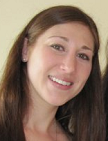 Allison Seitchik, Psychology
Allison Seitchik, Psychology
My primary research interest is in motivation and performance, specifically on how social threat influences motivation and, subsequently, performance. I am interested in developing interventions to overcome social threat performance effects, especially in relation to reducing the gender gap in STEM-related fields. I am also interested in how implicit biases and stereotypes may influence performance in and motivation to enter and stay in STEM-related fields. Currently, I am working on a meta-analysis on the predictive validity of the Implicit Association Test.
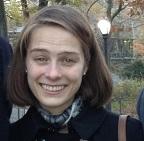 Yvona Trnka-Amrhein, Classics
Yvona Trnka-Amrhein, Classics
My research focuses on Ancient Greek prose, mainly prose fiction and biography. I am interested in the borders of prose genres and the interplay of history and fiction in prose texts, especially accounts of kings and divinities. I also study the complex interactions between Egyptian, Greek, and Roman culture in Greco-Roman Egypt. This work involves papyrology, Demotic Egyptian literature, and the material culture of cities and towns in Egypt.
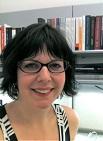 Kris-Stella Trump, Government
Kris-Stella Trump, Government
My main research interests are political psychology, comparative political behavior, and the functioning of democratic systems. I am particularly interested in social cognition and the application of social psychology to questions in political science. I am currently working on a book project about how income inequality affects our perceptions of fairness in income differences.
 Mary Wahl, Molecular and Cellular Biology
Mary Wahl, Molecular and Cellular Biology
Family histories can be used to predict an individual's risk of heritable illness, but have traditionally been limited by patient recall of their ancestors' and relatives' ailments. My research investigates how aggregation of genealogical records and public health data can improve the inference of disease risk through automated construction of an ultralarge family history. I also study how online genetic genealogy databases can be used to identify individuals through DNA segments shared with their relatives. For more details, please visit http://scholar.harvard.edu/mwahl/home.
 Laura Wang, English
Laura Wang, English
My current book project, “Natural Law and the Law of Nature in Early British Beast Literature,” examines the contribution of beast literature to the vexed discourse on nature in medieval and early modern thought. I argue that in the late fifteenth and early sixteenth centuries, beast literature—particularly beast fable and its unruly cousin, beast epic—has an intimate, mutually influential, and ultimately invasive relationship with political theory in Britain. As political writers adapt their theories to reflect the actual practice of politics, they increasingly draw upon beast literature in their formulations: thus, for example, Niccolò Machiavelli’s infamous injunction to the prince to become both a lion and a fox. Aside from animals in literature, my interests include gender, legal and political theory, theology, and lyric poetry.
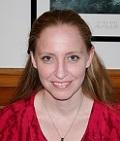 Katie Zink, Human Evolutionary Biology
Katie Zink, Human Evolutionary Biology
My research primarily focuses on cranio-dental morphology and the functional integration of the masticatory complex. In particular, I am interested in understanding how the advent and increasing use of food processing techniques has shaped hominin skulls and dentition. Have you ever wondered why you have such small teeth and jaws? Or why you spend so much money at the dentist/orthodontic office? To address these questions, I am using animal and human experimental models to investigate the effects of both simple and complex food processing techniques on chewing performance, and the growth and integration of the teeth and jaws.